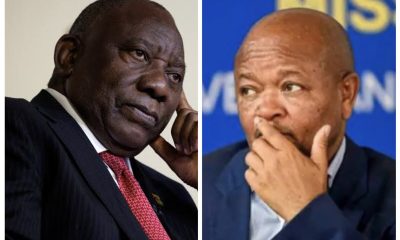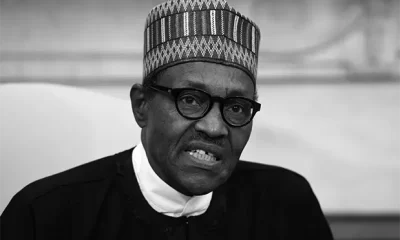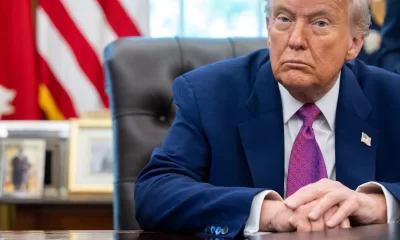News
Iran to reject US nuclear deal proposal
Iran is expected to reject a U.S. proposal aimed at resolving the long-standing nuclear standoff, an Iranian diplomat revealed, calling the offer a “non-starter” that fails to address Tehran’s core interests or reflect any change in Washington’s stance on uranium enrichment.
“Iran is drafting a negative response to the U.S. proposal, which could be interpreted as a rejection,” said a senior diplomat familiar with the negotiations, according to Reuters.
The proposal was delivered to Tehran on Saturday by Omani Foreign Minister Sayyid Badr Albusaidi, who has been mediating talks between Iran and the United States.
Despite five rounds of discussions between Iranian Foreign Minister Abbas Araqchi and U.S. Middle East envoy Steve Witkoff, key disagreements remain unresolved. Chief among them is Iran’s refusal to abandon uranium enrichment or to ship its existing stockpile of highly enriched uranium abroad, which the U.S. views as essential for non-proliferation.
Iran maintains that its nuclear program is for peaceful purposes and denies seeking nuclear weapons. “In this proposal, the U.S. position on enrichment inside Iran remains unchanged, and there is no clear roadmap for lifting sanctions,” said the diplomat.
Tehran is expected to formally respond to the offer soon, while the White House is urging Iran to accept the terms.
“President Trump has made it clear that Iran can never obtain a nuclear bomb. Special Envoy Witkoff has sent a detailed and acceptable proposal, and it’s in their best interest to accept it,” said White House spokeswoman Karoline Leavitt. She added that the administration would not disclose proposal details due to the sensitive nature of the negotiations.
Iran, however, insists on the immediate removal of all U.S. sanctions that are damaging its oil-dependent economy. The U.S. counters that nuclear-related sanctions should only be removed in phases. Since 2018, dozens of key Iranian institutions, including the central bank and the national oil company, have been blacklisted for allegedly supporting terrorism or weapons proliferation.
Trump’s renewed “maximum pressure” strategy—reimposed since his return to office in January—has tightened sanctions and included threats of military action if no agreement is reached.
The 2015 nuclear pact, which the U.S. exited in 2018, had seen Iran curtail its nuclear program in exchange for sanction relief. In response to the U.S. withdrawal, Iran resumed uranium enrichment beyond the limits set by the accord.
According to the Iranian diplomat, the proposal under review by Iran’s nuclear negotiations committee, overseen by Supreme Leader Ayatollah Ali Khamenei, is viewed as “completely one-sided” and fails to meet Tehran’s minimum requirements. It is therefore being labeled a “non-starter” that unilaterally imposes excessive demands.
The nuclear deadlock continues to elevate tensions in the Middle East. While the U.S. aims to prevent Iran from developing a nuclear weapon—fearing it could spark a regional arms race—Iran is focused on ending crippling economic sanctions.
Two Iranian officials indicated that Tehran may consider pausing uranium enrichment if the U.S. releases frozen Iranian assets and recognises Iran’s right to civilian nuclear enrichment as part of a broader political framework.
Israel, Iran’s main regional rival, views Tehran’s nuclear ambitions as a direct threat and has repeatedly warned it may strike Iranian nuclear facilities preemptively. Araqchi, in a news conference with his Egyptian counterpart in Cairo, dismissed this threat, stating: “I do not think Israel will commit such a mistake as to attack Iran.”
Meanwhile, Iran’s regional clout has diminished due to military losses suffered by its allies in the so-called Axis of Resistance, which includes Hamas, Hezbollah, Yemen’s Houthis, and various Iraqi militias.
In April, Saudi Arabia’s defence minister reportedly advised Iranian officials to consider Trump’s new proposal seriously, warning that rejecting it could raise the risk of open conflict with Israel.























